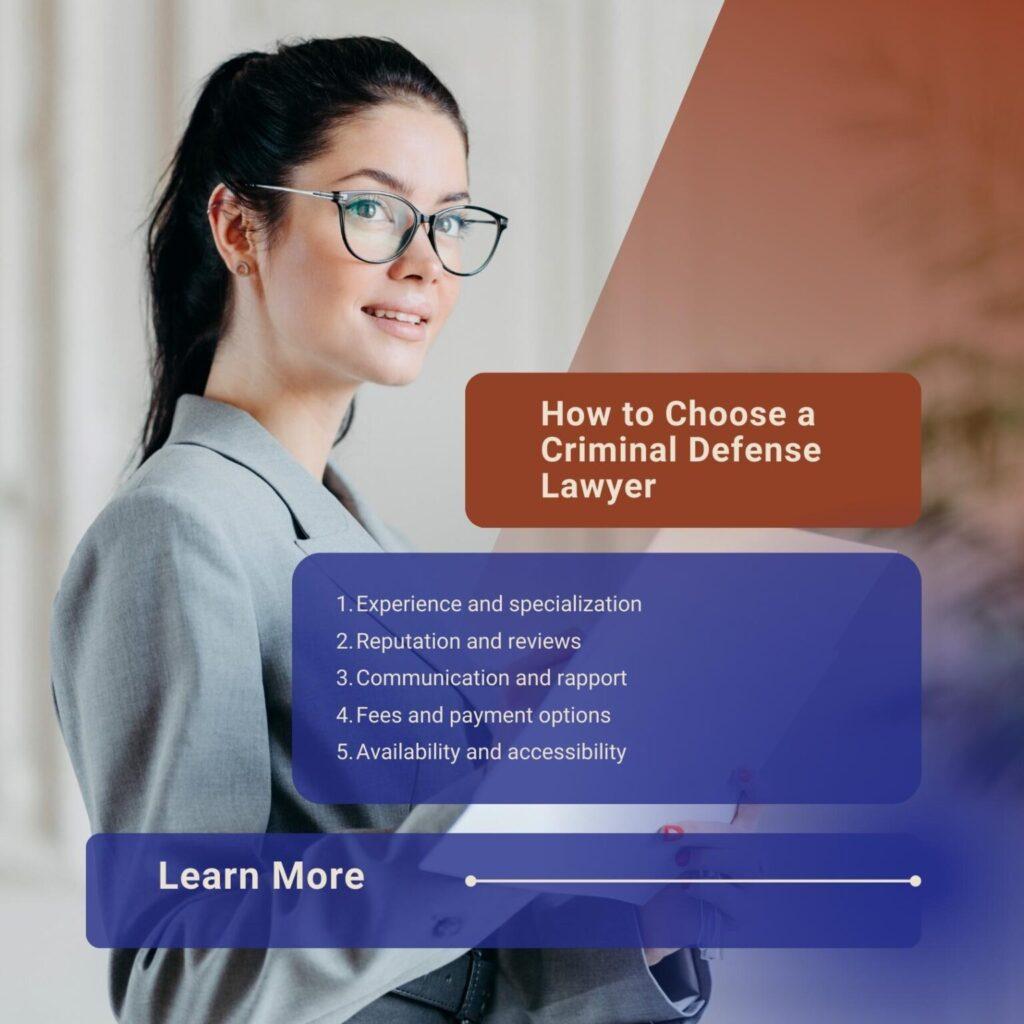If you are accused of a crime, whether it is a misdemeanor or a felony, you need a criminal defense lawyer to protect your rights and defend you in court. A criminal defense lawyer is a lawyer who specializes in the defense of individuals and companies charged with criminal activity. They can help you with every stage of your case, from filing an anticipatory bail to appealing a conviction.
But how do you choose the right criminal defense lawyer for your case? There are many factors to consider and questions to ask before you hire one. Here is a checklist for success:
Experience and specialization
You want a lawyer who has experience in handling cases similar to yours and who knows the laws and procedures of the jurisdiction where your case is pending. Also want a lawyer who has a niche within criminal defense, such as drug defense or DUI defense, if your case involves such charges. You can ask the lawyer about their track record, success rate, and how they approach different types of cases.
Q: Why are experience and specialization important when choosing a criminal defense lawyer?
Because experience and specialization indicate the lawyer’s level of knowledge and skill in handling cases similar to yours. A lawyer who has experience in dealing with the laws and procedures of your jurisdiction, the type of charges you are facing, and the possible defenses and strategies for your case will be more likely to provide you with effective representation and achieve a favorable outcome.
A lawyer who has a niche within criminal defense will also be more familiar with the nuances and complexities of that specific area of law and will be able to handle your case with more confidence and competence.
Reputation and reviews
You want a lawyer who has a good reputation in the legal community and among their past clients. If so, check their online reviews, ratings, testimonials, and awards to get an idea of their reputation. You can also ask for referrals from friends, family, or other lawyers who have worked with them or know them personally.
Q: Why is Reputation and reviews important for Criminal Defense lawyers?
It proves the lawyer’s credibility and performance in previous cases. A lawyer who has a good reputation in the legal community and among their past clients will have more trust and respect from judges, prosecutors, jurors, and other parties involved in your case. A lawyer who has positive reviews, ratings, testimonials, and awards will also have more evidence of their success rate, client satisfaction, and professional ethics. Reputation and reviews can help you evaluate the quality of the lawyer’s services and choose a lawyer who meets your expectations and needs.
Communication and rapport
You want a lawyer who communicates well with you and keeps you informed about your case. You also want a lawyer who listens to your concerns, answers your questions, and respects your decisions. Feel comfortable and confident with your lawyer and trust them with your case. You can meet with the lawyer in person or over the phone to get a sense of their communication style and personality.
Fees and payment options
You want a lawyer who charges reasonable fees for their services and offers payment options that suit your budget. Ask the lawyer about their fee structure, whether they charge by the hour or by the case, whether they require a retainer or a contingency fee, and whether they offer any discounts or payment plans. You should also ask about any additional costs or expenses that may arise during your case, such as court fees, expert witnesses, or travel expenses.
Q: Why is discussing cost and fees important when choosing a criminal defense lawyer?
Discussing costs and fees upfront helps you assess the financial implications of hiring a specific lawyer and ensures there are no surprises or misunderstandings regarding payment expectations. It allows you to make an informed decision based on your budget and the value you receive from the legal representation.
Availability and accessibility
You want a lawyer who is available and accessible when you need them. Ask your lawyer how often they will update you on your case, how they prefer to communicate with you (phone, email, text, etc.), and how quickly they will respond to your calls or messages. You should also ask if they have any other commitments or cases that may affect their availability or attention to your case.
Choosing a criminal defense lawyer is an important decision that can affect the outcome of your case and your future. By following this checklist, you can find a lawyer who meets your needs and expectations and who can provide you with the best possible defense
FAQ:
Q: What is the difference between a public defender and a private criminal defense lawyer?
A public defender is a criminal defense lawyer who is employed by the government to represent indigent defendants who cannot afford to hire their own lawyers.
A private criminal defense lawyer is a criminal defense lawyer who is privately retained by defendants who can afford to pay for their services.
Public defenders are usually assigned by the court to represent defendants, while private lawyers are chosen by the defendants themselves.
Q: How do I find a criminal defense lawyer in my area?
There are several ways to find a criminal defense lawyer in your area, such as:
- Asking for recommendations from friends, family, or other lawyers who have dealt with criminal cases
- Searching online directories or websites that list lawyers by location, practice area, ratings, reviews, etc.
- Contacting your local bar association or legal aid society for referrals or assistance.
- Visiting law firms or offices that specialize in criminal defense.
- Consulting online resources such as Google Local that help you connect with lawyers near you.
Q: How do I prepare for my first meeting with my criminal defense lawyer?
To prepare for your first meeting with your criminal defense lawyer, you should:
- Gather all the relevant documents and evidence related to your case, such as police reports, arrest records, witness statements, bail papers, etc.
- Write down all the details of your case, such as when and where the incident occurred, who was involved, what happened, etc.
- Write down any questions or concerns you have about your case or your lawyer
- Be honest and cooperative with your lawyer and provide them with all the information they need to defend you
- Listen to your lawyer’s advice and follow their instructions.
Q: What is the difference between a misdemeanor and a felony?
The difference between a misdemeanor and a felony is the severity of the crime and the punishment. A misdemeanor is a less serious crime than a felony. Misdemeanors usually involve jail time of less than one year, smaller fines, and temporary punishments. Some examples of misdemeanors are shoplifting trespassing, and simple assault.
A felony is a more serious crime than a misdemeanor. Felonies are the most serious crimes you can commit and have long jail or prison sentences, fines, or permanent loss of freedoms. Some examples of felonies are murder, robbery, and sex crimes.
The classification of crimes and their punishments may vary by state and jurisdiction. You should consult a criminal defense lawyer if you are accused of any crime.
Q: What is the difference between a crime and an offense?
The difference between a crime and an offense is not very clear, as the terms are often used interchangeably in law and common language. However, some possible distinctions are:
- A crime is a more general term that refers to any act or behavior that violates a law and is punishable by the state or other authority. An offense is a more specific term that refers to a violation of a particular penal law.
- A crime is a more serious term that implies a higher degree of moral or legal wrongness, while an offense is a less serious term that implies a lower degree of harm or damage.
- A crime is a term that applies to both civil and criminal law, while an offense is a term that applies mostly to criminal law. A civil wrong is not an offense, but it may be a crime if it also violates criminal law.
These distinctions are not always consistent or universally accepted, and different jurisdictions may have different definitions and classifications of crimes and offenses. You should consult a lawyer if you are involved in any legal matter.






